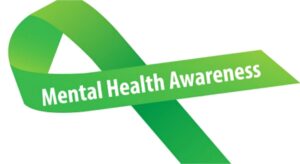Mental Health Concerns, if left untreated, can lead to a variety of problems that can last a lifetime, such as mental, physical, social and emotional health. Early discovery of problems and fast expert assistance is critical for preventing the development of these conditions.

Awareness of mental health concerns and the need for aid has been growing in recent years. This is in large part due to campaigns designed to raise awareness for various concerns as well as more people being open about their own mental health struggles. Despite this, many people who need help for a mental health issue don’t seek it.
A study by the World Health Organization, or WHO, found that between 30 and 80 percent of people with mental health issues don’t seek treatment.
Going by the profusion of mental health affirmations and posts on social media, it may seem like Young India is ready to talk about and get help with mental health concerns than previous generations. But yet it has been proven to be otherwise, as the findings of a recent UNICEF study reveal: only 41 percent of young Indians feel it is okay to seek mental health support.
Most experts unanimously agree that youth today don’t lack awareness but the information and knowledge they receive is half-baked. As awareness does not give assurance to breaking of stigma, which is an important factor impacting the pursuit of therapy by youth.

With mental health issue being more visible than ever and care being more available, why do relatively few people seek help?
When someone starts to develop a mental health concern, it is met with a lot of apprehensions and challenges their confidence from inside as well as outside. The people surrounding the individual with mental health concern often make it worse and take the behaviour and actions as deviant to the authorities.
⦁ In our culture and the kind of education system we have, people as old as 24-25 years of age are often dependent on their parents for their financial needs, and don’t have an independent source of income. This is a huge challenge—either they can’t afford therapy or their family members won’t support this choice, which makes it even more difficult for them to seek mental health support.
⦁ The fear of being judged, stereotyped and socially isolated due to lack of acceptance by society is another reason which is a cause of hesitation.
⦁ There is a lot of misinformation as well, such as mental illness being contagious, or witchcraft being a cure. Different Cultures have different influences on many aspects of how mental health is viewed, including how clients express and manifest their symptoms, their style of coping, and their willingness to seek aid.
⦁ Another reason is overlooking. When we do not see something as an issue, we do not look for a solution. For example, a person who has normalized the idea of being scolded by parents, they won’t see the impact it is having on the child in the longer run and hence, won’t reach out for support.
The National Mental Health Survey (NMHS), conducted by NIMHANS, estimates that nearly 9.8 million adolescents aged 13-17 years are in need of active mental health care intervention and that this number would be greater if the entire age spectrum of childhood, adolescence and young adults is considered.

So, What Can We Do to Incorporate a Sense of Acceptance to this rising Awareness for people to seek Aid?
⦁ Integrating mental health education into school and university curriculums will increase knowledge and understanding of those experiencing difficulties, removing any stigma or social misconceptions and replacing these with an atmosphere of positivity and acceptance
⦁ Conducting life-skills training, bullying prevention programs and facilitating access to counsellors when and if needed.
⦁ Having open conversations about mental health with friends and family, encouraging them to talk about their problems, and normalizing the concept of seeking help within one’s interpersonal circles.
⦁ Regular Mental Health Check ups in schools, community centres and Societies to keep and check on how an individual is doing.
Imagine if everyone is well aware of the importance of mental health and starts talking and educating people around them…A lot of our mental health issues stem from systemic oppression, and we need to work on such root causes to bring about a sustainable change.
We at Society for Complementary Therapies are committed towards taking this wave awareness towards acceptance and de-stigmatize the notion of seeking aid for mental health concerns in our community. If you are someone you know is in need of mental health support you can reach out to our experts on www.sfct.in , info@sfct.in
“Raise Awareness, journey towards Acceptance and Receive and Guide people towards Mental Health Aid.”





Recent Comments